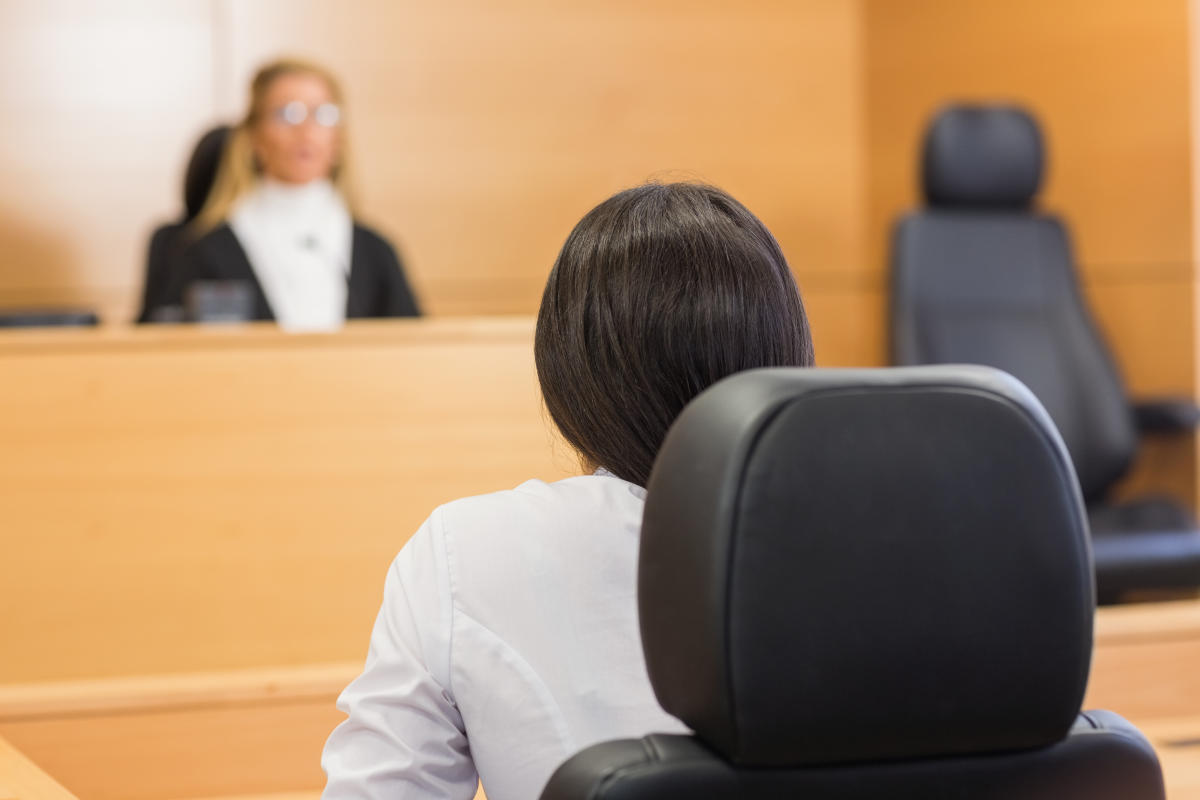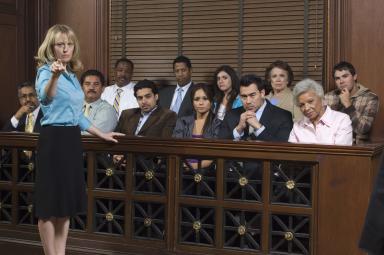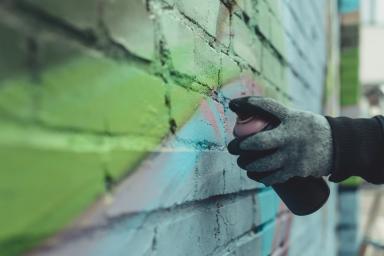Criminal Trial Timelines and Outcomes: What to Expect [2024]

A criminal trial can demand months of preparation and litigation before the final ruling. The more serious the crime in question, the longer the trial is likely to last. For example, a felony charge can last a few days up to several months depending on the jurisdiction and the court’s schedule, among other factors such as the number of witnesses and experts to testify at trial. . Other crimes usually take less time to prosecute in court, but the timeline varies widely. While defendants have the right to a fair and speedy trial, it is just as important that the defense and prosecution are given sufficient time to build their cases.
Those involved in a criminal trial are often anxious to understand what they should expect in the weeks and months ahead. In general, they want to know how long criminal trials last. If you are facing an upcoming criminal trial, you are likely interested in learning more about the expected timeline and outcomes. Because each case is unique, there is no single answer to this question. However, learning more about the contributing factors of criminal trials can help you, and your defense attorney prepare your case.
How Long Does a Criminal Trial Last?
All defendants are guaranteed the right to a fair and speedy trial, but some cases necessitate longer trials than others. There are countless details of the crime in question that could affect the length of a criminal trial. The circumstances surrounding the illegal act, choices made by the prosecution and defense, and the severity of the alleged crime will all impact the overall timeline. The categories listed below are all factors you should consider when estimating how long a criminal trial will take.
Number of Crimes
In many cases, a defendant may be tried not just for a singular crime but for a series of connected criminal acts. For example, if the defendant is accused of arson in addition to murder, they may face multiple felony charges. The prosecution must provide definitive evidence of each of these crimes, potentially adding to the trial timeline.
Number of Victims
One crime can impact multiple victims; additionally, one criminal can impact multiple victims over a period of time. If there are multiple victims in question, their cases may be tried separately. For example, if a person has been charged with murder and there are multiple victims, they could face charges for the murder of each victim. These cases may not be tried subsequently and can be spread over the course of weeks or months.
Category of Crimes
First and foremost, the severity of the alleged crimes will significantly impact the length of a criminal trial. If a person is charged with a felony such as murder, sexual assault, or arson, it will take longer than other types of cases to provide enough evidence for the jury to decide the case—however, not all criminal charges are felonies. Defendants can be charged with a misdemeanor or minor offense that will likely go to trial much quicker than a felony case.
Severity of Crimes
Even if crimes are in the same category (felony, misdemeanor, or minor offense), the crimes within these categories can vary greatly in severity. In most jurisdictions, there are various classifications or levels within each category. For example, there may be class A, B, C, D and E level felony in a jurisdiction where the higher class of felony - the A - will have more severe penalties than each of the lower classifications.
Plea Deals
In some cases, the defendant’s guilt is not in question, and the trial will only serve to determine the length and severity of their sentence. In these cases, a criminal defendant and their attorney may review the strength of their case and decide to plead guilty in exchange for a reduced sentence. When the defendant pleads guilty, the case will not go to trial. This is commonly referred to as a “plea deal” and will significantly shorten the timeline of the case.
Court’s Processing Speed
Filing a criminal case requires a significant amount of paperwork. The efficiency of your local courts will impact how quickly your case is tried. In some cases, it could take the parties many months or years to proceed through the discovery process and reach the trial stage. To avoid unnecessary delays, a defense attorney should conduct their investigation, gather and review discovery, and conduct plea negotiations in a timely manner. And if the client chooses to reject all plea agreements, a defense attorney should notify the court to obtain a trial setting.
Issues with Jury Selection
To ensure a fair trial, the court makes every effort to select an impartial jury to hear your case. Jury summons must be sent, and potential jurors must be interviewed before the panel of jurors for your trial is finalized. If there are issues with the court’s initial jury selection (for example, if the juror in question has any association with the case, the defendant, or the victims), the court must summon new jurors to be interviewed.
Discovery Phase
Both the prosecution and defense are given a “discovery” period to gather evidence to support their case and review the opposition’s evidence. During the discovery phase, the prosecution has the obligation to provide evidence to the defense in advance of trial pursuant to the defendant’s Constitutional rights and any applicable state laws and rules. The defendant may have an obligation to provide some evidence to the prosecution based on the state’s laws and rules, such as expert reports and opinions. . Depending on how hard this evidence is to gather and if there are questions about its admissibility, the discovery phase can take months. Each state has its own limitations on how long the discovery phase may take.
Number of Witnesses
During the trial, both the prosecution and defense have the right to call witnesses to the stand for their testimonies. Witnesses may provide eyewitness accounts of an accident, corroborate alibis, or provide needed context for the prosecution or defense. These testimonies are crucial in building a robust case; the result of a trial can often be entirely influenced by witnesses taking the stand. The trial timeline may be lengthened significantly depending on how many witnesses are called.
Number of Expert Testimonies
Throughout the course of a criminal trial, it is normal for experts in fields such as psychology, medicine, and criminology to be called to testify. Each expert witness needs to be approved by the court, and it may take time to schedule these crucial testimonies. If your case requires multiple experts to testify, it could considerably lengthen court proceedings.
Appeals
Finally, once the trial ends, the defense may file an appeal of any convictions against the defendant (generally within a month after the trial ends). Filing an appeal requires an upper court to review the court or jury’s verdict and reevaluate the details of the case. Taking the case to an appellate court can take months or even years after the initial trial.
Resources for Criminal Defendants
Being charged with a felony can be the most uncertain and stressful time in a person’s life. Unsure of their rights, many people charged with a crime may not make the right decisions leading up to their appearance in court. While the court is obligated to provide you with legal representation, you have the right to choose your own counsel. Hiring an experienced defense attorney will ensure you are aware of the full extent of your legal rights. Many organizations are dedicated to matching criminal defendants with affordable or pro bono attorneys. Additionally, other resources exist to help those convicted of a crime navigate the appeals process or life with a criminal conviction.
CASES
If you are in the process of appealing your case and are faced with living with a criminal conviction, many resources exist to help convicted criminals and felons. The Center for Alternative Sentencing and Employment Services (CASES) helps connect those convicted of a crime with employment opportunities, mental health counseling, and care management. Fill out CASES’ Contact by Email form to be connected to potential resources.
The Innocence Project
If you have been falsely convicted of a crime, the attorneys at The Innocence Project can help you appeal your claim. The Innocence Project is an independent nonprofit founded to help bring justice to thousands of wrongly convicted individuals throughout the nation. Your trial must be over, and there must be available DNA evidence to prove your innocence to have your case reviewed. To submit your case to The Innocence Project, review the criteria for application and how to submit your case via mail.
The American Bar Association
In many cases, defendants may be unable to pay a quality attorney to represent them in their case and may be assigned a lawyer who mishandles their defense. If you have been charged with a crime and are looking for pro bono attorneys near you, the American Bar Association (ABA) helps connect victims and defendants alike with pro bono legal representation and advice. Their Free Legal Help page lists various resources to help criminal defendants take advantage of the full extent of their legal rights.
Expertise.com StaffAuthor
Step into the world of Expertise.com, your go-to hub for credible insights. We don't take accuracy lightly around here. Our squad of expert reviewers, each a maestro in their field, has given the green light to every single article you'll find. From rigorous fact-checking to meticulous evaluations of service providers, we've got it all covered. So feel free to dive in and explore. The information you'll uncover has been stamped with the seal of approval by our top-notch experts.

Kim BenjaminReviewer
Kimberly Benjamin started her career as a lawyer because she loved helping people. At the time, she did not have a clue that the criminal justice system was not fair to everyone and that innocent people were actually arrested and in prison. She quickly learned the truth as a public defender in Kansas City, Missouri, where she came to be known as a zealous fighter for her clients in and out of the courtroom.
Kim is known among her peers as an expert DWI and criminal defense lawyer and a spectacular trial lawyer who obtains unbelievable results for her clients. Visit: https://www.dwicriminallawcenter.com/




